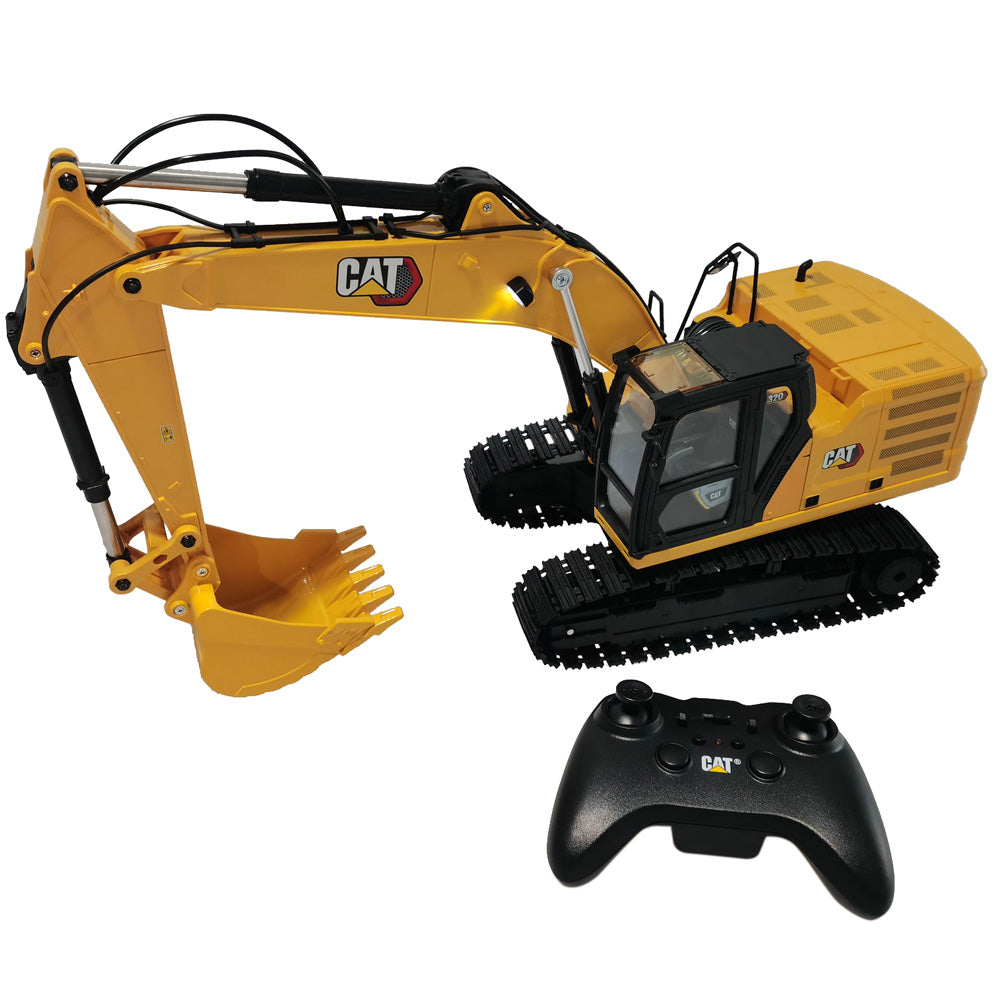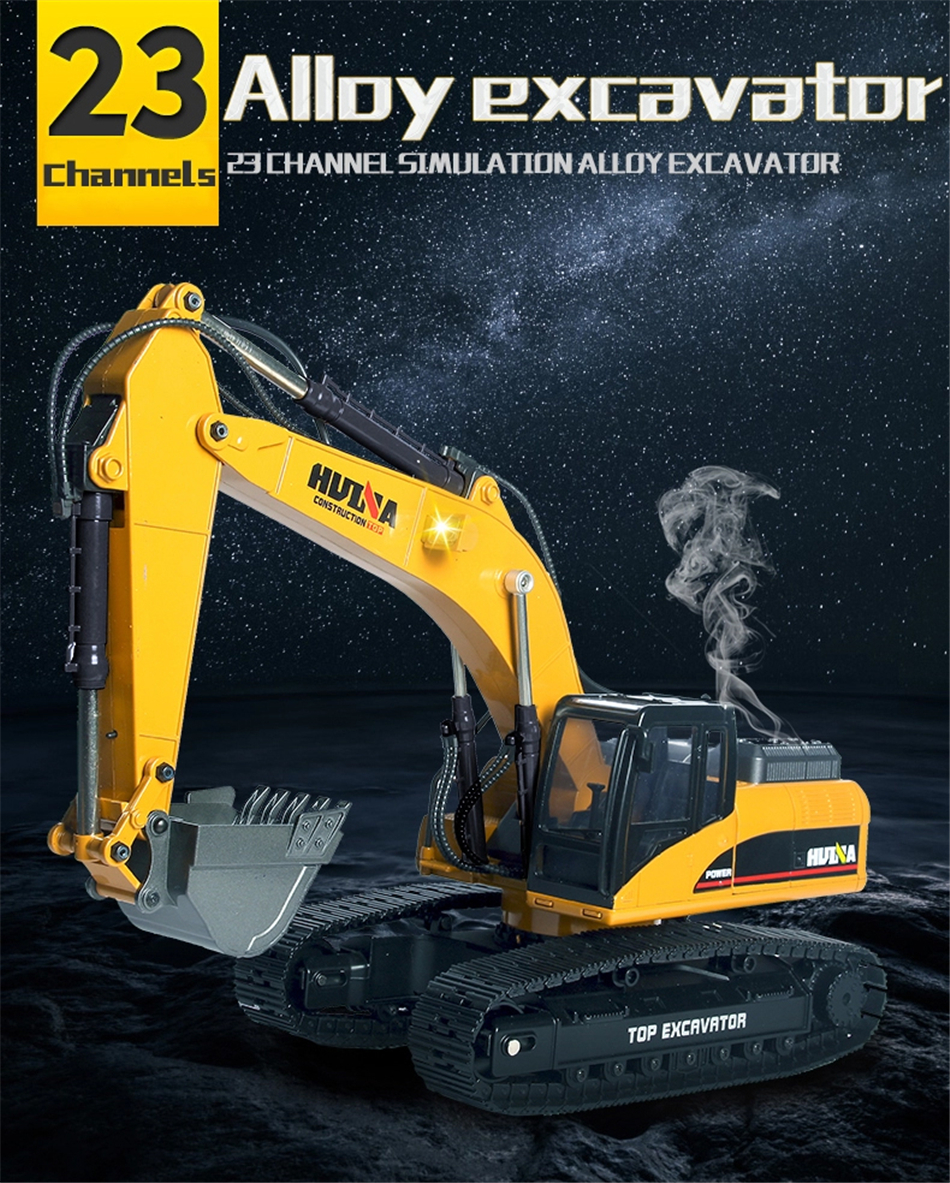Comprehending Exactly How Excavator Works and Its Effect on Efficiency
Excavators play a necessary function in building and mining operations, relying on a complex interaction of mechanical and hydraulic systems. Their ability to carry out a variety of jobs rests on both their design and the modern technology incorporated within. Comprehending these elements can significantly impact functional effectiveness and performance. As innovations remain to reshape the industry, one have to consider just how these adjustments will affect future practices and efficiency.
The Fundamentals of Excavator Mechanics

The Function of Hydraulic Equipments in Excavators
At the heart of excavator procedure exists the hydraulic system, which plays a pivotal duty in powering the machine's functions and movements. This system uses pressurized hydraulic fluid to transfer energy, allowing various actions such as training, swinging, and digging. By taking advantage of the concepts of hydraulics, excavators can do tasks with remarkable accuracy and pressure, boosting total functional efficiency.The hydraulic system is composed of key components, consisting of shutoffs, pumps, and cyndrical tubes, which collaborate to manage the circulation and direction of the fluid. When the operator involves the controls, the hydraulic fluid is directed to particular cylinders, equating the operator's commands into physical activity. This system enables receptive and smooth activities, which are vital in building and construction and excavation environments. double e volvo rc excavator. The effectiveness of the hydraulic system straight affects the productivity and adaptability of the excavator, making it an essential aspect in contemporary excavation procedures
Key Elements of an Excavator
Understanding the vital components of an excavator is necessary for realizing exactly how this effective device runs. An excavator consists of numerous substantial aspects, consisting of the undercarriage, house, arm, boom, and container. The undercarriage supplies stability and wheelchair, usually featuring tracks or wheels to browse various terrains. Your home consists of the engine and hydraulic systems, enabling the operator to manage activity and power the equipment. The boom prolongs from the house, enabling upright reach, while the arm links to the bucket, promoting digging and training operations.Additionally, the cab houses the driver, equipped with controls for precise maneuvering. Each of these parts plays an important role in the excavator's general capability, adding to its efficiency and efficiency on building and construction websites. Understanding these parts assists in keeping and optimizing excavator performance, making sure tasks are finished safely and efficiently.
Attachment Adaptability and Its Advantages
Attachment versatility is a necessary aspect of excavators, allowing drivers to switch over in between numerous tools tailored for specific tasks. This flexibility not just boosts work effectiveness however additionally contributes to cost-effectiveness by minimizing the need for multiple machines. Understanding the different kinds of accessories offered can substantially influence the general efficiency and performance of an excavator on task sites.
Kinds of Add-ons
While excavators are primarily acknowledged for their digging abilities, their real adaptability depends on the wide array of attachments available. These attachments enhance the excavator's performance, enabling it to carry out various jobs beyond excavation. Typical accessories include buckets (for excavating and scooping), hydraulic thumbs (for understanding materials), and augers (for piercing holes) Grapples are used for handling and relocating particles, while rippers can separate tough surfaces. Other specialized add-ons, such as trenchers and rakes, allow excavators to adapt to details task requirements. This diversity not only raises the maker's utility throughout different sectors, consisting of landscape design, building and construction, and demolition, yet additionally enables drivers to customize their equipment to fulfill particular project needs efficiently.
Raised Task Efficiency
Making best use of task performance is a main benefit of utilizing different excavator attachments. Various attachments enable an excavator to perform several tasks without needing to switch over devices, conserving important time and labor. For example, utilizing a hydraulic hammer can damage concrete while a bucket attachment can excavate dirt, making it possible for a smooth workflow. This convenience reduces downtime related to devices modifications and improves performance on-site. Additionally, specialized accessories improve accuracy in tasks such as grading or landscape design, causing better results. The ability to adapt to numerous job demands not just improves procedures however also lessens the need for additional equipment, making certain that tasks are completed swiftly and properly. In general, accessory convenience considerably adds to raised find out job efficiency in excavation work.
Cost-Effectiveness and Versatility
Cost-effectiveness is a significant advantage of using versatile excavator attachments. These attachments enable a single excavator to carry out numerous jobs, lowering the requirement for added machinery and labor - double e volvo rc excavator. By switching over in between buckets, hammers, and grapples, drivers can deal with numerous tasks, from digging to demolition, therefore making the most of equipment application. This flexibility not only decreases functional costs but likewise reduces downtime associated with transforming tools. In addition, the capacity to personalize excavators with specialized add-ons boosts efficiency, as they can effectively deal with diverse tasks according to job demands. In conclusion, the mix of cost-effectiveness and adaptability in excavator attachments contributes to enhanced functional performance and source appropriation in building and construction and excavation jobs

Advanced Modern Technology in Modern Excavators
Modern excavators are progressively furnished with sophisticated technology that changes excavation processes. Automation streamlines procedures, while boosted gas efficiency reduces operational expenses. Additionally, wise control systems enhance precision and security, noting a substantial advancement in excavation equipment.
Automation in Excavation Processes
As excavation modern technology develops, automation has emerged as a crucial part in enhancing efficiency and precision on work websites. Modern excavators are equipped with advanced automated systems that promote jobs such as grading, digging, and trenching with marginal operator intervention. These systems make use of sensors, GPS, and maker knowing algorithms to guarantee exact placing and deepness control, greatly minimizing the margin for mistake. Additionally, automation enables operators to concentrate on calculated decision-making rather than manual controls, leading to enhanced efficiency generally. Such innovations not only simplify process yet likewise improve security by decreasing human error in complicated procedures. The integration of automation in excavation processes represents a considerable innovation in construction innovation, driving the market towards higher performance and efficiency.
Enhanced Fuel Efficiency
Developments in innovation have actually likewise caused considerable renovations in gas efficiency for contemporary excavators. Modern equipments are outfitted with advanced engines that optimize power outcome while decreasing gas usage. These engines utilize cutting-edge burning technologies, such as turbocharging and straight fuel injection, to improve performance and efficiency. Furthermore, lightweight products in building and construction decrease general weight, enabling less power expenditure during procedure. The introduction of variable rate controls makes it possible for drivers to readjust engine performance according to specific jobs, even more lessening gas use. Because of this, these enhancements not just reduced functional costs but likewise add to ecological sustainability by decreasing exhausts. In general, enhanced gas performance in excavators is a necessary development that bolsters efficiency and economic stability in the building market.
Smart Control Solution
While drivers navigate progressively complicated work sites, clever control systems in excavators have become crucial devices for enhancing efficiency and accuracy. These innovative innovations use sensors and algorithms to check numerous specifications such as tons weight, terrain conditions, and operational performance. By immediately readjusting hydraulic features, smart systems optimize machine efficiency, causing enhanced productivity and decreased wear on parts. Additionally, operators gain from instinctive user interfaces that give real-time comments and diagnostics, allowing for informed decision-making. This assimilation of modern technology not only enhances operations yet likewise minimizes human error, adding to more secure workplace. As the construction market remains to advance, wise control systems will play a crucial duty fit the future of excavator efficiency and performance.
Enhancing Functional Performance With Excavators
Excavators play a crucial role in boosting operational performance across numerous building and construction and excavation tasks. Their flexibility permits several jobs, including material, training, and excavating handling, which improves operations and lowers the Going Here demand for extra devices. With effective hydraulic systems, excavators can execute sturdy jobs with precision, significantly lowering the moment needed to total jobs. The combination of innovative technology, such as general practitioner and automated controls, additionally enhances their procedure, making it possible for drivers to attain better accuracy and lower product waste. Additionally, modern-day excavators are made to consume less fuel and minimize exhausts, contributing to both cost financial savings and ecological sustainability. By utilizing excavators effectively, building and construction teams can improve performance, fulfill project target dates, and enhance general website administration. This multifunctionality and efficiency make excavators indispensable tools in the contemporary construction landscape.
The Future of Excavators in Construction and Mining Industries
As the building and construction and mining markets develop, the future of excavators is poised for considerable makeover driven by technological advancement and transforming operational demands. Advancements in automation and man-made knowledge are improving excavator capabilities, enabling enhanced precision and effectiveness in operations. Self-governing excavators are arising, reducing the requirement for human treatment and decreasing the risk of accidents.Moreover, the combination of telematics and IoT technology enables real-time surveillance of device efficiency and predictive upkeep, enhancing uptime. Environment-friendly layouts, consisting of hybrid and electrical models, are acquiring grip, aligning with sustainability objectives within the industry.Additionally, the usage of advanced materials and lighter styles boosts gas efficiency while maintaining efficiency requirements. As these trends development, excavators will certainly play an essential role in satisfying the enhancing needs for efficiency and safety and security in building and mining, inevitably changing functional landscapes.
Frequently Asked Questions
How Do Weather Impact Excavator Efficiency?

Climate condition substantially affect excavator efficiency, as rain and mud can prevent grip and security, while extreme temperatures may affect hydraulic systems. Operators needs to adapt to these variables to assure ideal functionality and safety during procedures.
What Safety Procedures Should Operators Comply With While Using Excavators?
Security procedures for excavator operators consist of putting on suitable personal protective equipment, conducting pre-operation assessments, Bonuses ensuring proper communication with ground personnel, keeping a safe distance from above dangers, and adhering to recognized functional protocols to avoid accidents.
How Frequently Should Excavators Be Preserved for Optimum Performance?
Excavators must be preserved frequently to assure peak efficiency, usually every 250 operating hours or as defined by the manufacturer. Routine checks enhance reliability, prevent unexpected malfunctions, and expand the life expectancy of the devices.
What Is the Typical Life Expectancy of an Excavator?
The typical life expectancy of an excavator commonly varies from 10,000 to 15,000 hours of procedure. Factors influencing durability consist of maintenance techniques, running conditions, and the high quality of the device itself, impacting general efficiency and performance.

Can Excavators Run on Irregular Surface Properly?
Excavators can run successfully on uneven terrain because of their expressed designs and flexible tracks. These features permit them to preserve security and grip, making it possible for efficient procedure in difficult environments commonly experienced in building and landscape design jobs. Each of these parts plays a vital duty in the excavator's overall functionality, contributing to its performance and effectiveness on building and construction websites. Making the most of job performance is a main advantage of utilizing various excavator accessories. While operators browse significantly complicated work websites, smart control systems in excavators have arised as essential tools for boosting effectiveness and accuracy. Excavators play an important duty in boosting operational efficiency across various construction and excavation tasks. Advances in automation and fabricated knowledge are improving excavator abilities, enabling for enhanced precision and effectiveness in operations.